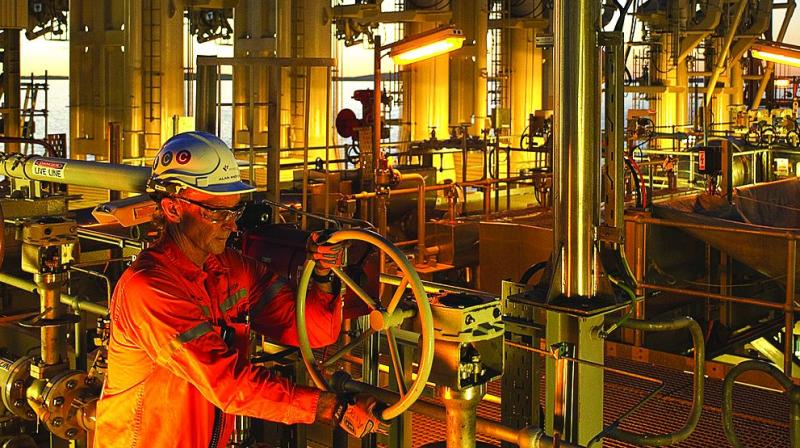Naphtha becomes bad news for global economy
China’s weak growth compounds probelm for market.

London: An obscure product made by oil refineries has a grim story to tell investors right now about the fortunes of the global economy.
That product is naphtha, something used to make a vast array of goods while also being integral to churning out gasoline. Oil refiners' margins from making it are the weakest in years in Europe and Asia. Unusually, some petrochemical plants in Asia have even been losing money when processing it.
Signs of weakening manufacturing in China could scarcely have come at a worse time for the market, given a backdrop of surging US shale oil and gas supply that's flooded petrochemicals producers with the raw materials they need. With some of those plants undergoing maintenance, it's little wonder the naphtha market is taking a hit.
"Naphtha demand is simply very sensitive to economic sentiment and growth," said Jan-Jacob Verschoor, London-based director of Oil Analytics Ltd., which keeps track of the margins of hundreds of oil refineries around the world.
"The trade war with escalating tariffs, has killed manufacturing sentiment in the East, thereby weakening margins of petrochemical plants."
Naphtha rarely grabs headlines because it's usually not consumed directly.
Instead, refineries make it from crude oil and then use it to churn out gasoline.
Likewise, petrochemical plants process it to make what ultimately becomes plastics and other manufacturing raw-materials. The fuel was on board a tanker recently attacked just outside the Persian Gulf, part of a spate of incidents targeting shipping in the region.
The profits an oil refiner makes from turning crude oil to naphtha — known as crack spreads in trader jargon — are plunging. In Japan, a benchmark for the fuel in Asia, they slumped to the lowest in at least four years in recent weeks.
Corresponding indicators in Europe also remain seasonally very weak, prompting speculation they could be encouraging some refiners to process less crude.
The US-China trade-spat appears to be hurting the Asian country's economy, a vital driver of demand for naphtha.
Retail sales there are at the lowest level in years while car sales have fallen for twelve straight months. China's Manufacturing PMI index was at 49.4 points in May, the weakest for the time of year since at least 2005. Profits of petrochemical producers in the region have been withering.
It's not just demand that's an issue. Naphtha competes with propane as a feedstock for petrochemical plants.
Recent weakness in the price of the liquefied petroleum gas, another consequence of the US energy boom, has heavily diminished the appeal of naphtha in the past five weeks, Hui Heng Tan, an analyst at Marex Spectron, wrote in research note dated June 10. With the US exports of the LPG set to accelerate, petrochemical plants' appetite for naphtha may not rebound anytime soon.
The other market where naphtha is widely used -- gasoline -- is not picking up the slack created by weak petrochemicals demand.
Normally, when there's a spike in demand for gasoline, buying of naphtha typically picks up as it gets used as a blending stock, according to JBC Energy GmbH. However, a recent surge in gasoline prices in Europe didn't result in a corresponding strengthening of naphtha margins -- a sign to the Vienna-based researcher of a particularly weak market.
"This suggests to us that there is simply already a maximum volume of naphtha in the finished gasoline pool, meaning that naphtha is having to price in order to maintain its position in the petchem market," JBC said.
The naphtha market's woes are also being caused in part by the type of crude the world is pumping these days. A surge in US supply of low-density crude has meant refineries are processing more of it, resulting in extra naphtha and other light-end refined products. American shale oil production will surge this quarter, rising by 2,50,000 barrels a day compared with the first three months of the year, JBC said in a note on Tuesday.
Gasoline inventories in the US Gulf of Mexico are at the highest for the time of year since at least 1990.
With no signs of a US-China trade deal in sight, and predictions that American crude production will only keep surging, the immediate future of the naphtha market looks precarious.

